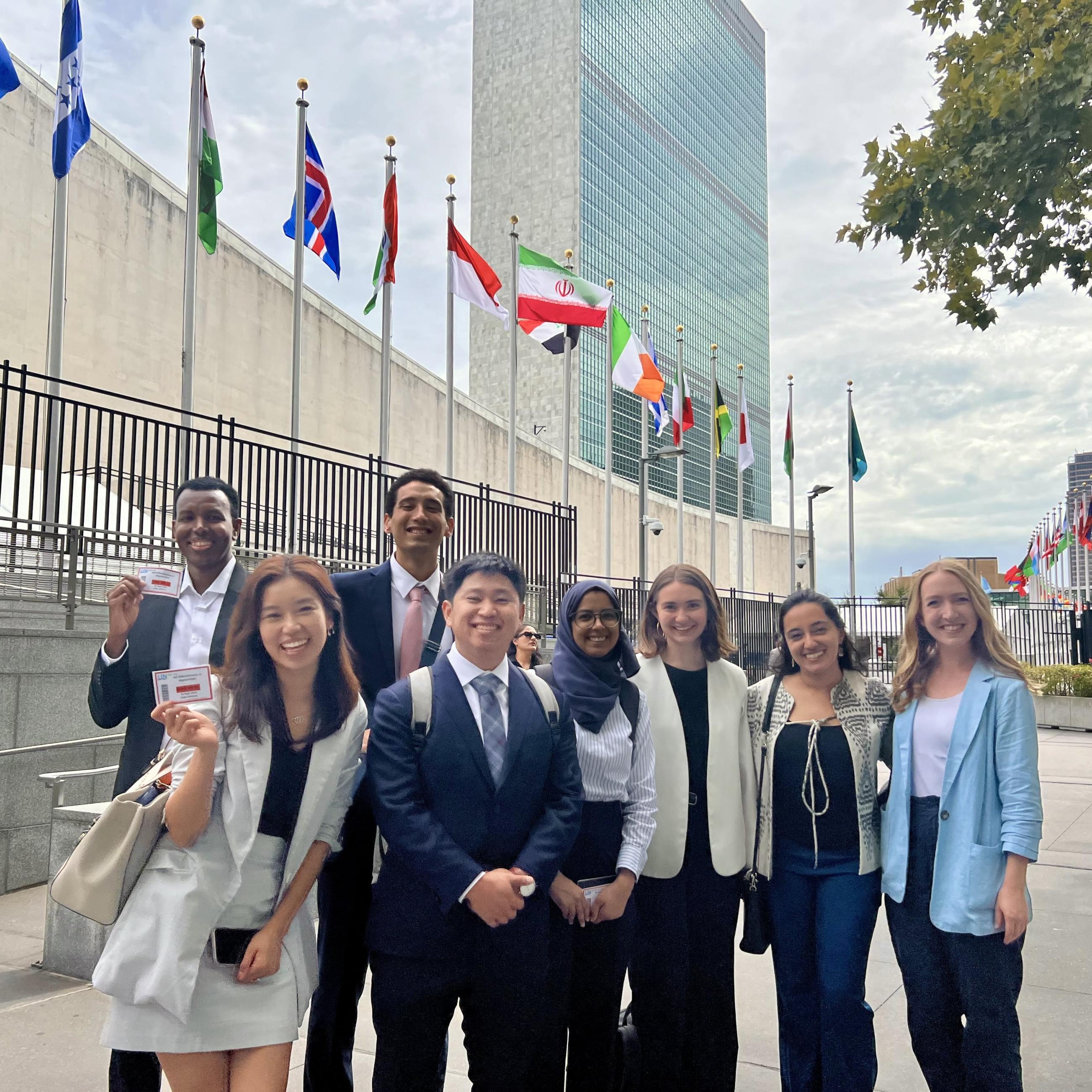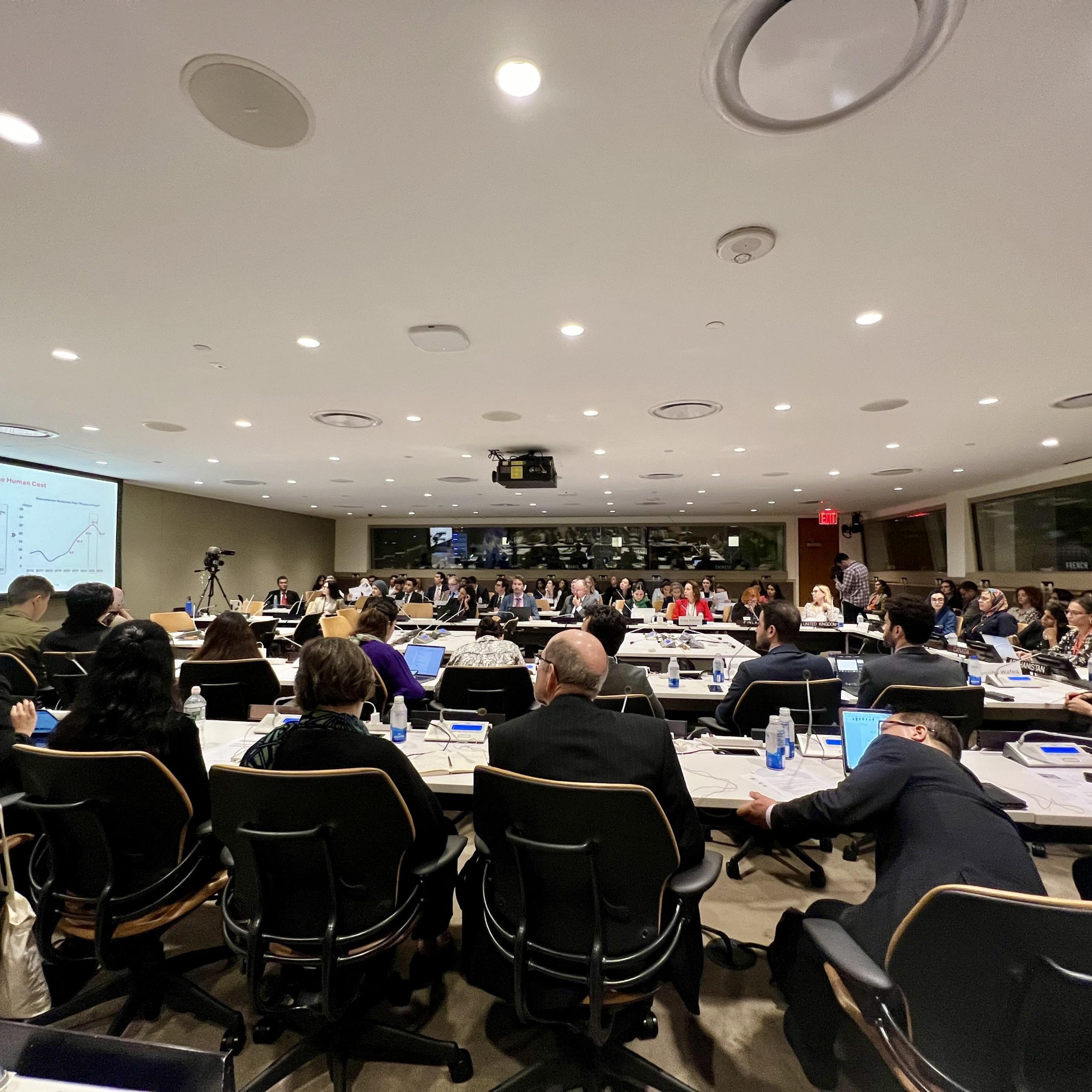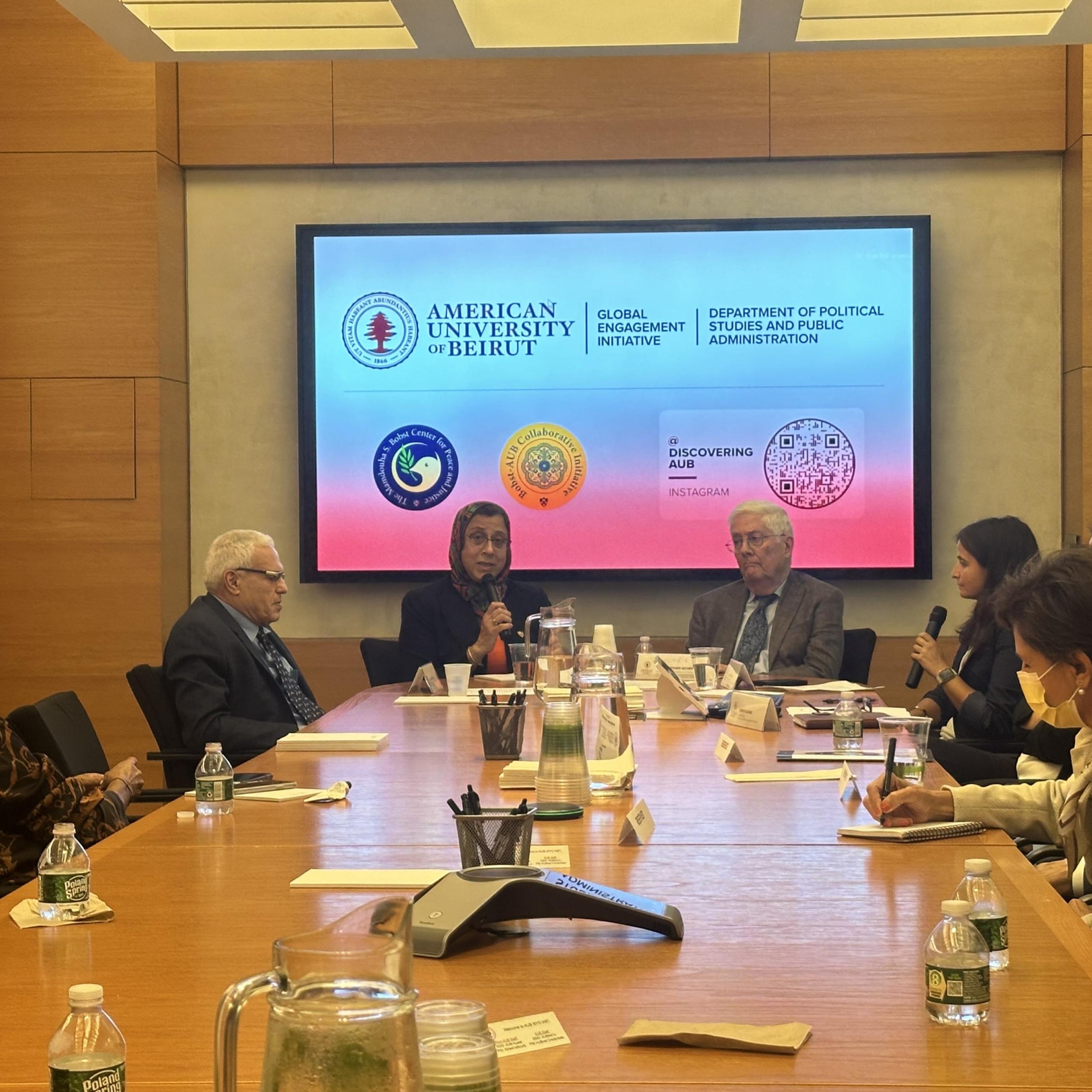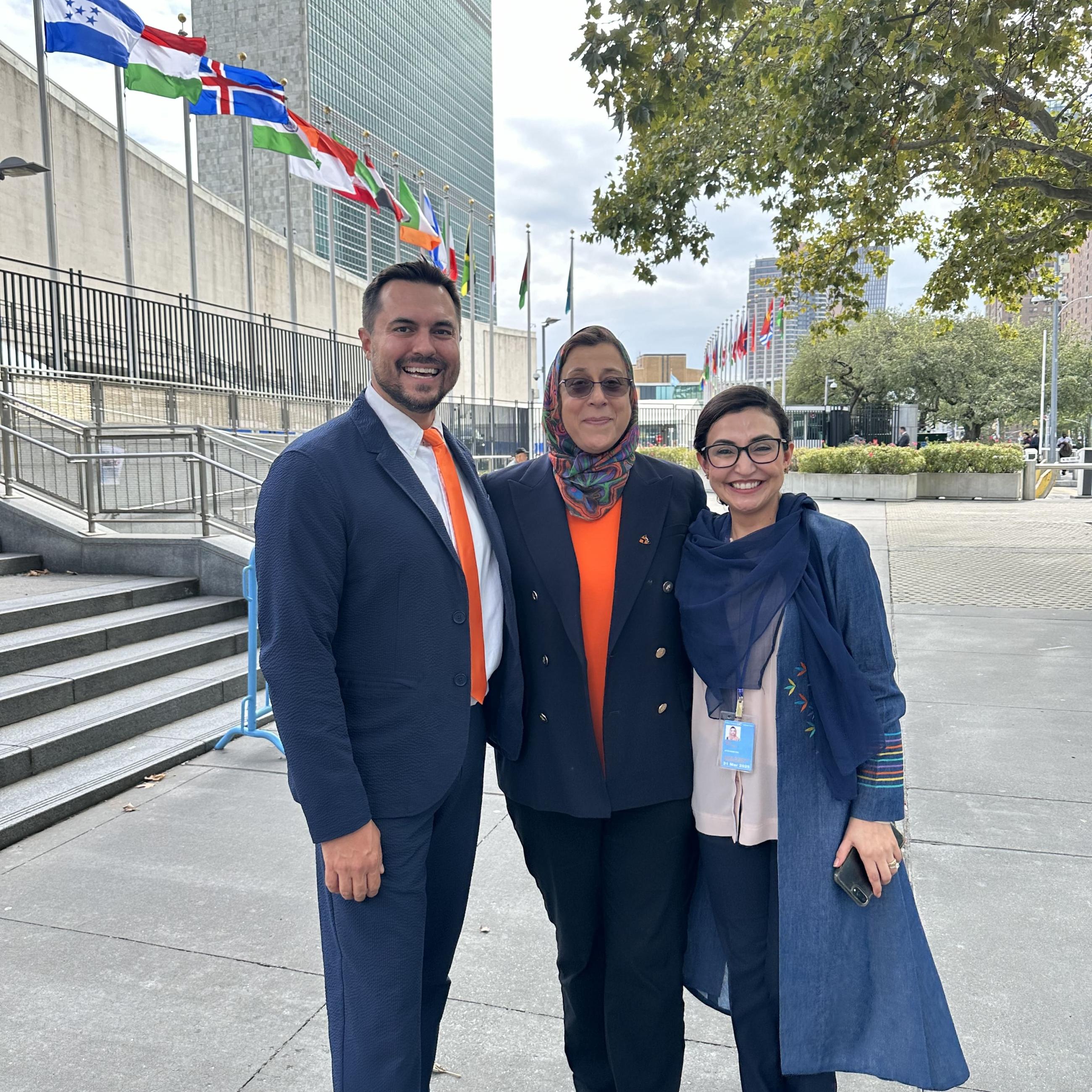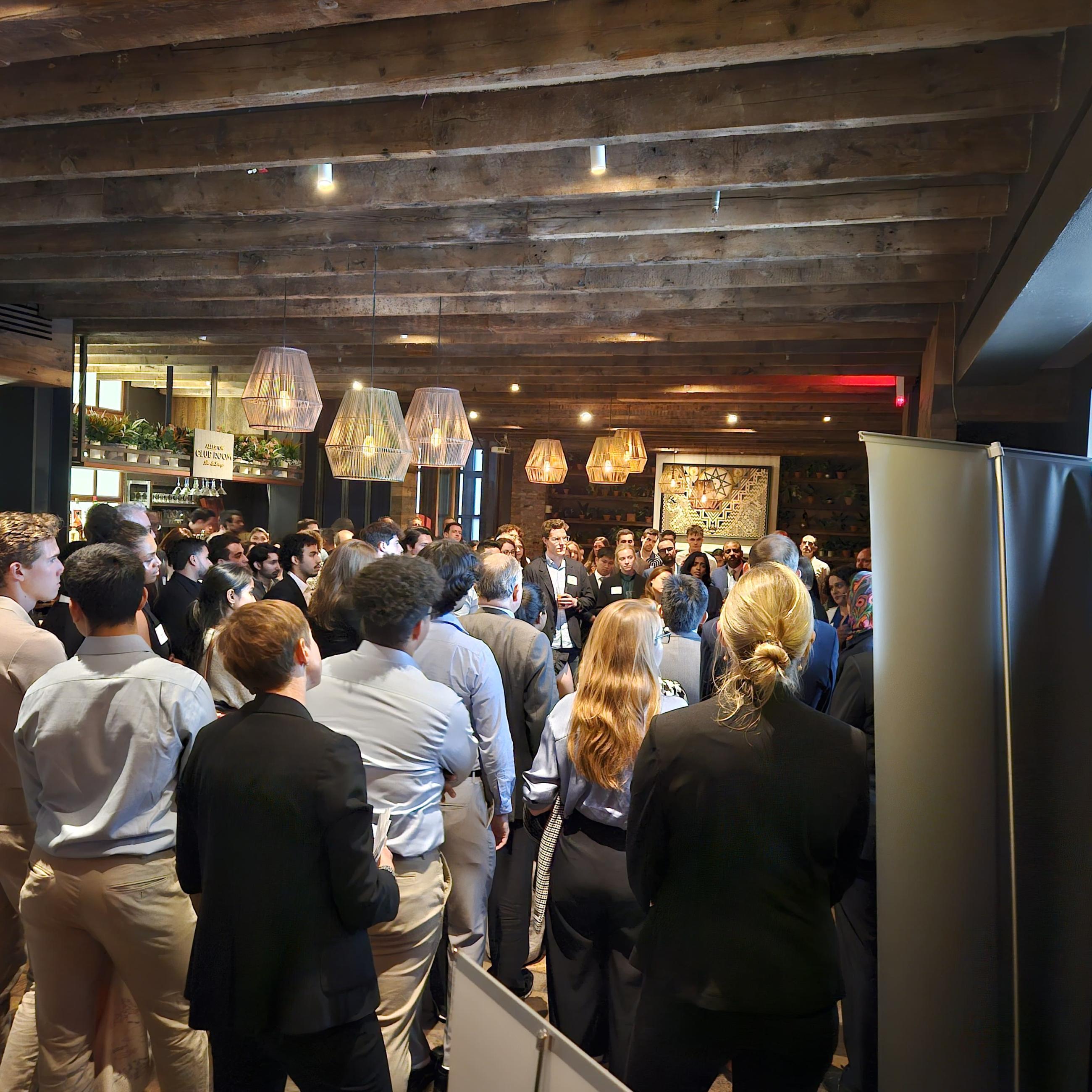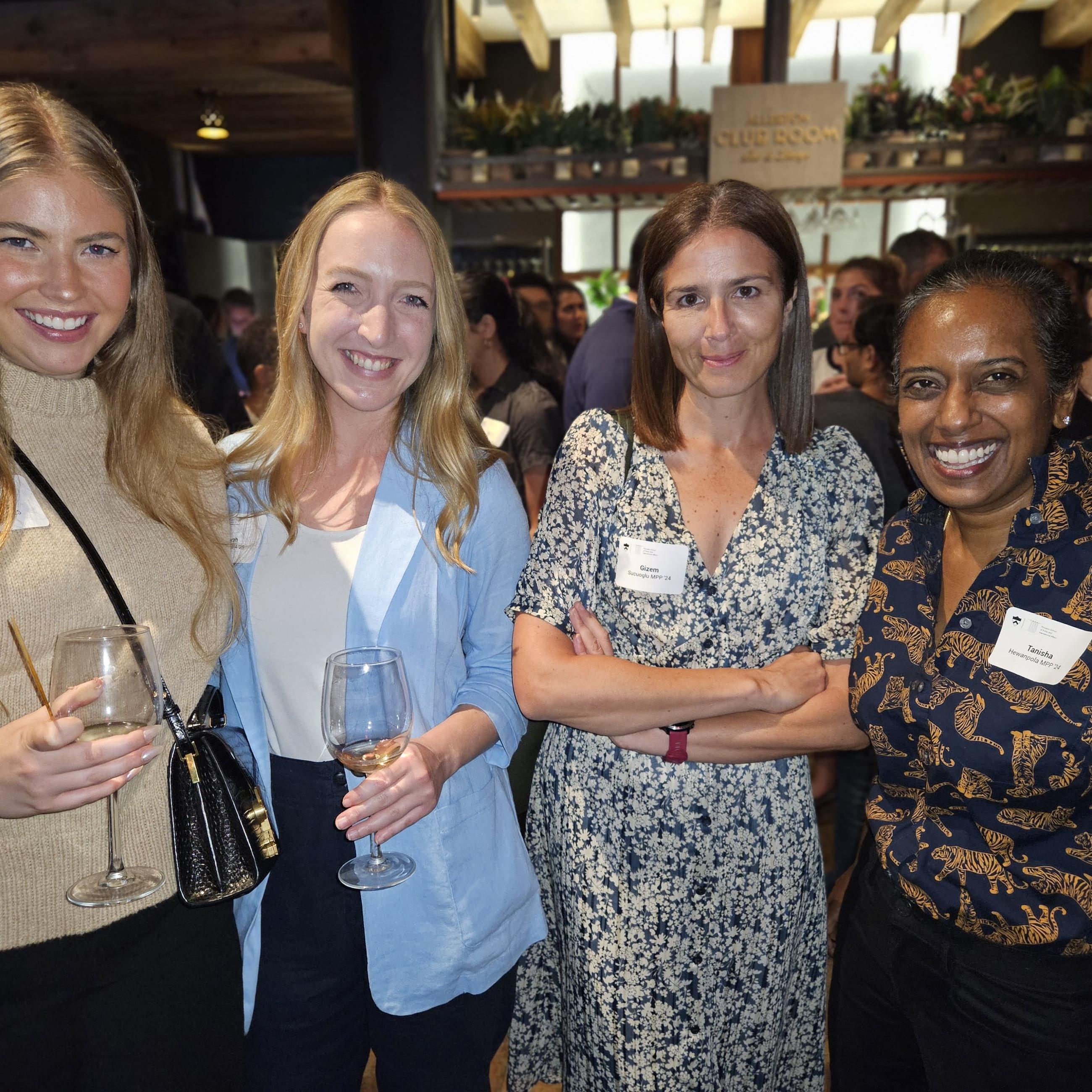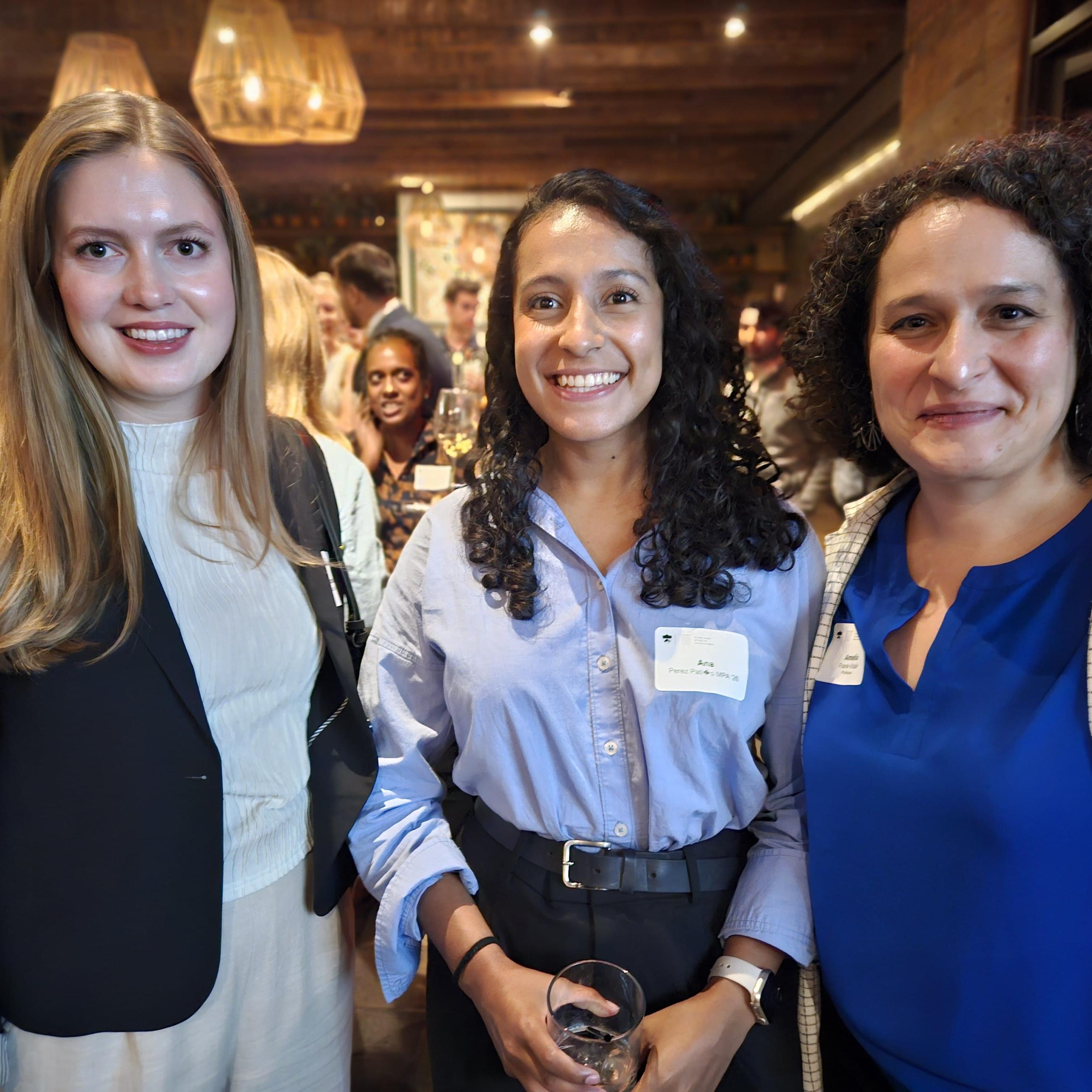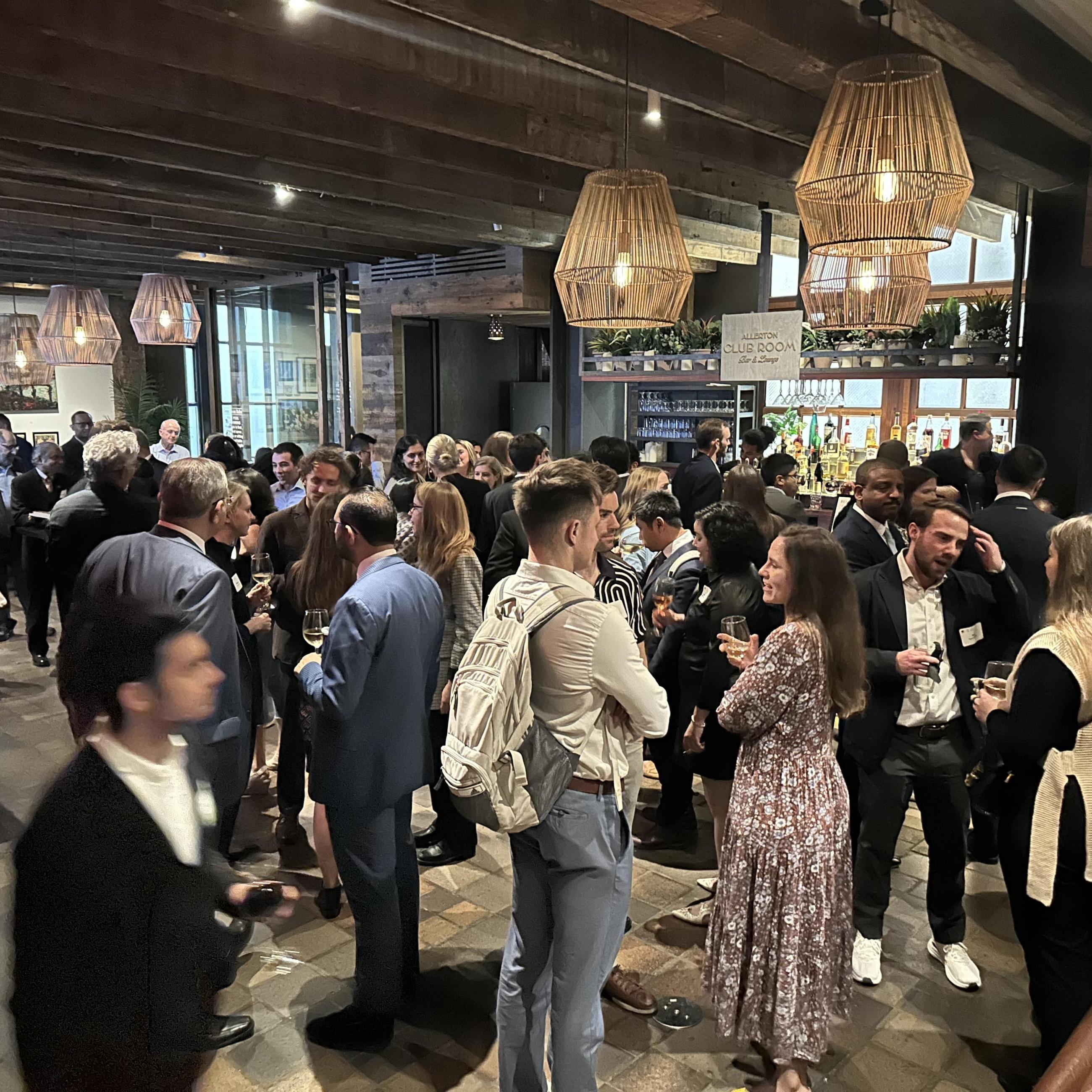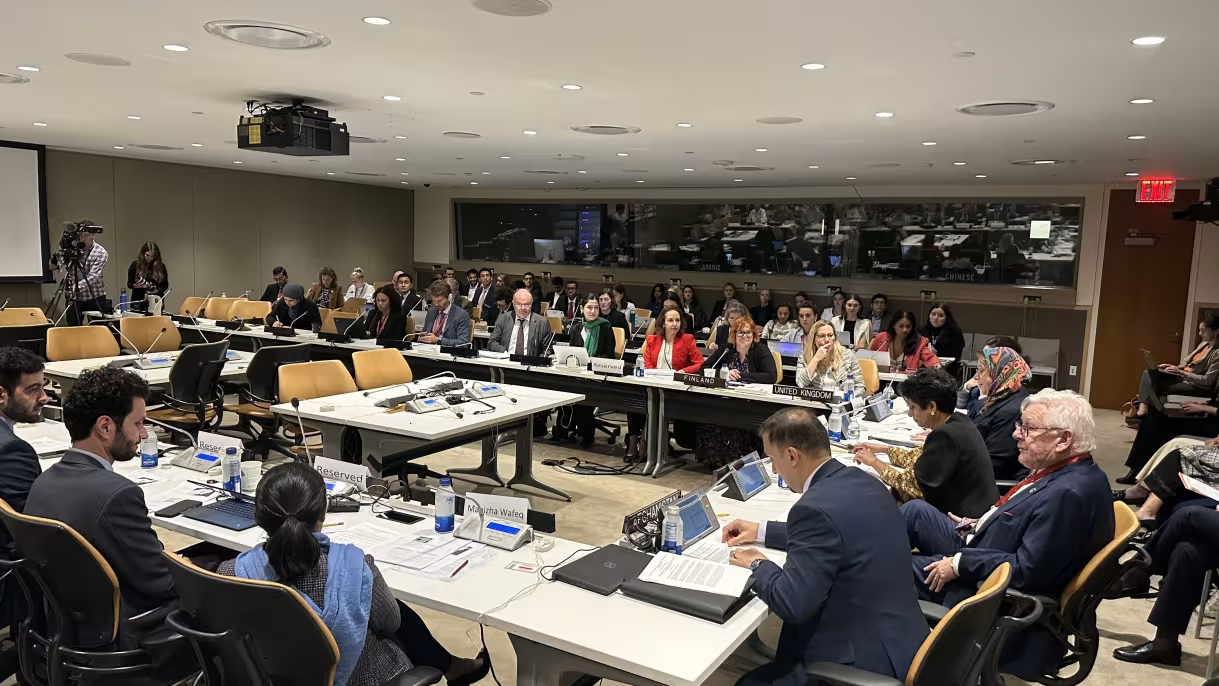

From Diplomacy to Humanitarian Aid: Princeton SPIA Engages at the 79th UNGA
The Princeton School of Public and International Affairs (Princeton SPIA) hosted multiple events adjacent to the 79th session of the United Nations General Assembly in New York this month, creating opportunities for students, alumni, and faculty members to engage with U.N. representatives on a variety of pressing global policy challenges.
More than 150 alumni, U.N. representatives, and community members attended a reception hosted by the School on Sep. 18. Faculty members addressed the crowd to share ways that Princeton SPIA is helping advance the global goals outlined in the 2030 Agenda as it relates to peace, prosperity, people, planet, and partnership.
Gen. Mark Milley, the retired 20th Chairman of the Joint Chiefs of Staff and a Charles and Marie Robertson Visiting Professor and Visiting Lecturer at Princeton SPIA, spoke about the importance of using diplomacy to promote peace in a time of conflict.
“We are in an era of increased risk,” Milley said. “We have to help students develop a situational understanding of what is happening around the world and commit to making this a better place for everybody.”
Amelia Frank-Vitale, an assistant professor of anthropology and international affairs, discussed the challenges of migration and asylum as they relate to the U.N.’s goals of reducing inequalities. She is working with SPIA students to explore the history of the asylum system and to work on asylum cases.
“So much of the challenge of migration would actually be solved if we were able to eradicate hunger and poverty,” she said.
Princeton is also addressing climate change goals through interdisciplinary approaches, noted Michael Oppenheimer, the Albert G. Milbank Professor of Geosciences and International Affairs at Princeton SPIA, the Department of Geosciences, and the High Meadows Environmental Institute. Oppenheimer is the director of SPIA’s Center for Policy Research on Energy and the Environment.
“You can't really solve the climate change challenge by just figuring out the science. You need the social sciences, sociology, the humanities,” he said. "We’ve increased the connection among the different departments at the University.”
Addressing the U.N.’s goals around prosperity, Layna Mosley focused on the issue of sovereign debt and the importance of government access to capitals markets. Mosley is a professor of politics and international affairs and directs the Princeton Sovereign Finance Lab, which focuses on the politics of the global economy.
In April, the Lab brought together policymakers with academics in economics, law, and political science to share research and learning.
“By looking at the politics and the economics, and thinking about the life cycle of how governments access credit, we can help to think better about how to build prosperity for governments that need access to capital,” Mosley said.
Steven Petric, assistant dean for global outreach, admissions, and alumni engagement, said one of the goals of the evening was to drive effective partnerships between the School and alumni in support of the U.N. goals.
Earlier in the day, the Afghanistan Policy Lab (APL) at Princeton SPIA co-hosted a side event at the UN on aid effectiveness in Afghanistan with the Permanent Mission of Afghanistan. Co-sponsors included the Permanent Missions of Canada, Finland, and the United Kingdom. Kanni Wignaraja MPA ’89, who currently serves as U.N. Assistant Secretary General and Regional Director for Asia and the Pacific at the United Nations Development Programme, spoke on the panel.
The discussion centered on rising food insecurity, especially among female-led households as the Taliban restricts women’s ability to work, which has created severe economic challenges for children and worsened the humanitarian crisis in Afghanistan.
Princeton SPIA Dean Amaney Jamal said the session demonstrates the School’s responsiveness to global community needs and commitment to providing humanitarian support.
“When we launched APL, I said the work of its scholars and practitioners would influence policy recommendations for the country, and I noted that the APL would play a key role in elevating the perspectives of Afghans on the ground by partnering with local organizations, think tanks, multilateral organizations such as United Nations, and experts to include their ideas. Today's discussion embodies this vision,” Jamal said.
Princeton SPIA students who attended said the hearing helped them learn how the international community can build coalitions and set policy agendas to solve critical challenges.
“I haven’t previously had as much opportunity to physically be here and see how the institution functions internally,” said Sophia Kierstead MPA ’28, a Scholars in the Nation's Service Initiative fellow. “Listening to the remarks here today gave me a deep sense that this is a challenge that has been around for my generation’s whole lives. We need to look at new ways to confront it, and it’s on us to change that.”
Dean Jamal also spoke on a panel about the U.S. elections and their impact on the Middle East that morning, with U.N. representatives and scholars in the audience. The event was a collaboration between Princeton University’s Bobst-American University of Beirut (AUB) Collaborative Initiative, which Jamal leads, and AUB’s Global Engagement Initiative.


